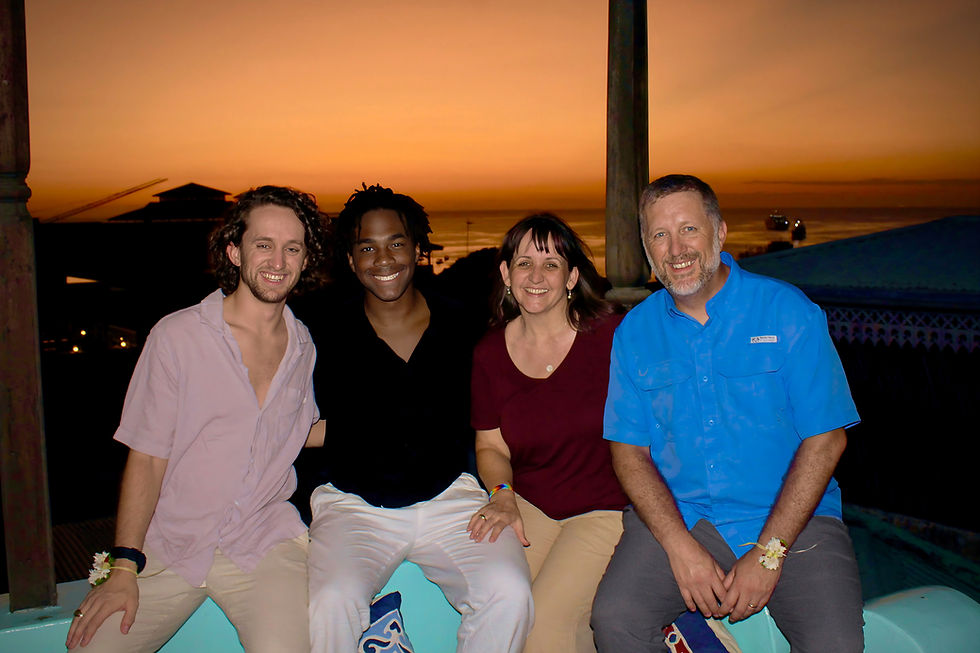All the Lonely People
- Sally Gary

- Mar 11, 2013
- 4 min read
Wesley Hill’s depiction of loneliness in the second part of Washed and Waiting is, to me, the most powerful part of the book. And his call to the church to find better ways to respond to our loneliness excites me.
Wesley identifies as a gay Christian, but believes his faith calls him to a life of celibacy. Understanding that same-sex attraction encompasses so much more than a sexual act, he explains that within every human being is a God-breathed desire for connection – emotional, spiritual, physical. With someone who shares a mutual desire for us. With someone who ‘gets’ us and wants to be with us in the same way that we want to be with them.
When that need goes unfulfilled, the loneliness can seem unbearable, as Wesley describes:
“The love of God is better than any human love. Yes, that’s true, but that doesn’t change the fact that I feel – in the deepest parts of who I am – that I am wired for human love. I want to be married. And the longing isn’t mainly for sex . . . it is mainly for day-to-day, small kind of intimacy where you wake up next to a person you’ve pledged your life to, and then you brush your teeth together, you read a book in the same room without necessarily talking to each other, you share each other’s small joys and heartaches. Do you know what I mean? One of my married friends told me she delights to wake up in the night and feel her husband’s foot just a few inches from hers in their bed. It is the loss of that small kind of intimacy in my life that feels devastating. And, of course, this ‘small intimacy’ is precious because it represents the ‘bigger intimacy’ of the covenantal union of two lives. It is hard for me to think of living without this. Yes, I have dear friends – several who are so precious to me I truly do believe I would give my life for them. One of my closest is another single guy about my age. But I know that things will change. He will move away or get married, and the kind of relationship we have will change. We will still be friends, hopefully, but it will not be like a marriage”
(pp. 105-6).
This is what the compassion of Christ calls us to respond to – the aching loneliness. The wound of loneliness that Henri Nouwen likens to the Grand Canyon, “a deep incision on the surface of our existence which has become an inexhaustible source of beauty and self-understanding” (p. 92). Wesley presents Nouwen’s story as a parallel. Nouwen experienced a lifelong struggle with loneliness, as one who also believed he was called to a life of celibacy. Yet Nouwen’s life differed from Hill’s, though, because his homosexual attractions were never publicly known during his lifetime.
Perhaps Hill’s story has even more potency because he’s made himself known. Potency for him, personally, in that he doesn’t have to hide anything that he views as a struggle in his life. And even though there’s risk in sharing so openly, there’s also much more potential for good – to feel less alone, to feel supported by a community of fellow believers who know all your stuff and love you all the more.
And the more we share our stories, the more we as the church wake up to the fact that these stories are right in our midst and we can no longer stand by and not respond to the unmet needs for connection and intimacy within our spiritual community.
That’s what I think is most enlightening in this section of the book – the concept “that the New Testament views the church – rather than marriage – as the primary place where human love is best expressed and experienced” (p.111).
What do you think of that? Of church being the place where we fill our deepest sense of belonging? Of community being the primary place where our needs for emotional connection and intimacy are met?
What would that look like?
Maybe it looks like Shane Claiborne’s Simple Way faith community, which he describes as a web of relationships among believers who love God, love people and are trying to follow Jesus.
Or like Larry James’ Central Dallas Ministries, buying apartment complexes in urban areas where people can get back on their feet.
Or maybe we form intentional communities where people who are otherwise all by themselves live together for accountability and share meals and the responsibility of family. To just have someone greet you at the door when you come home.
So you don’t feel quite so alone.
“The remedy for loneliness – if there is such a thing this side of God’s future – is to learn,” Wesley says, “over and over again, to do this: to feel God’s keeping presence embodied in the human members of the community of faith the church” (p. 113).
I’m not quite sure yet what the remedy is for providing community for those of us who experience same-sex attraction. But I’m looking for people who will dream with me about how we can relieve the aching pain of loneliness.
What would such a faith community look like for you?




Comments